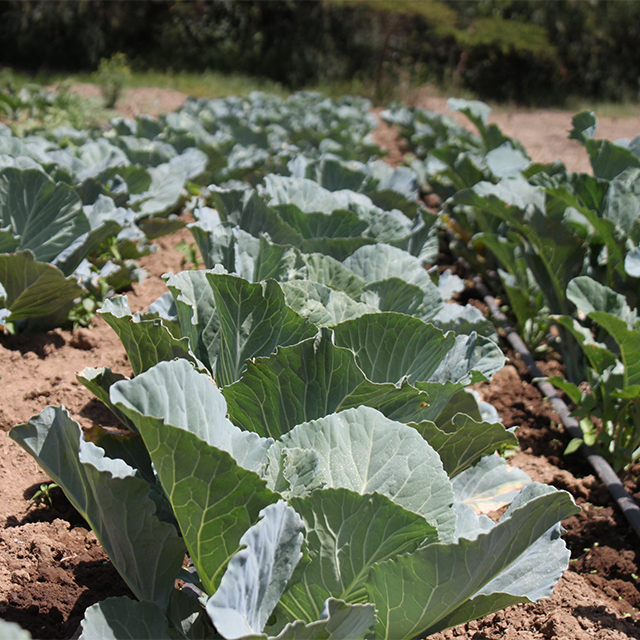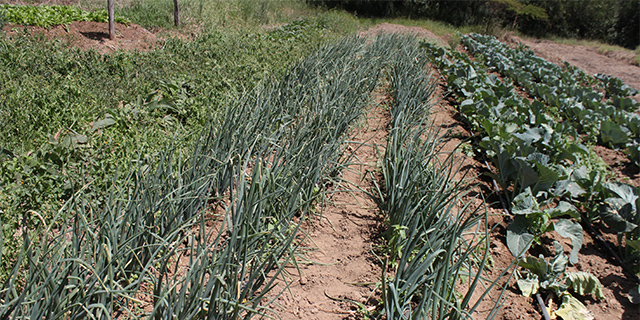
In 2012, Ol Pejeta, through its Community Development Department began a partnership with Sirima Catholic Youth Group to promote conservation agriculture. The group has been trained on use of drip irrigation in their farming ventures. Over the years, group members have positively taken to the new farming method and are now yielding impressive returns from the project.
The main advantage of using drip irrigation is that it helps minimize water usage, especially in areas where water stress is an issue. Another advantage of drip irrigation is that it allows agriculture to go on all year round as opposed to rain-fed agriculture, which is seasonal.
Since the group’s formation, they have been growing onions, tomatoes, strawberries, melons among other crops on a ¼ acre plot of land at Sirima catholic parish, Laikipia. They have ready market for their produce from surrounding schools; hence they are assured of healthy returns from their efforts. The crops are grown on a rotational basis and this has helped to ensure continued financial returns for members. Through the proceeds of the farming project, group members have benefited by earning money that they have reinvested in 10 beehives that they will use to produce honey for sale. The success of the group has also helped enhance social cohesion in the society due to the development of cordial relations among members. Group meetings also provide a platform for discussing emerging contemporary issues affecting the youth and this has helped enhance knowledge among the group’s members on specific social matters. The group, consisting of over 70 members also receives free trainings and seminars on conservation agriculture and agribusiness, facilitated by Ol Pejeta.
In future, the group plans to scale up their agricultural venture to 2 acres so as to increase the area under drip irrigation. There is some space within the school compound and Ol Pejeta has donated a water tank that will store water to be used in the expanded agricultural area. Several members of surrounding communities have begun to adopt this faming ‘best practice’ to enhance returns from their farming ventures. Hopefully more will adopt drip irrigation so as to maximize their yields while minimizing water use.